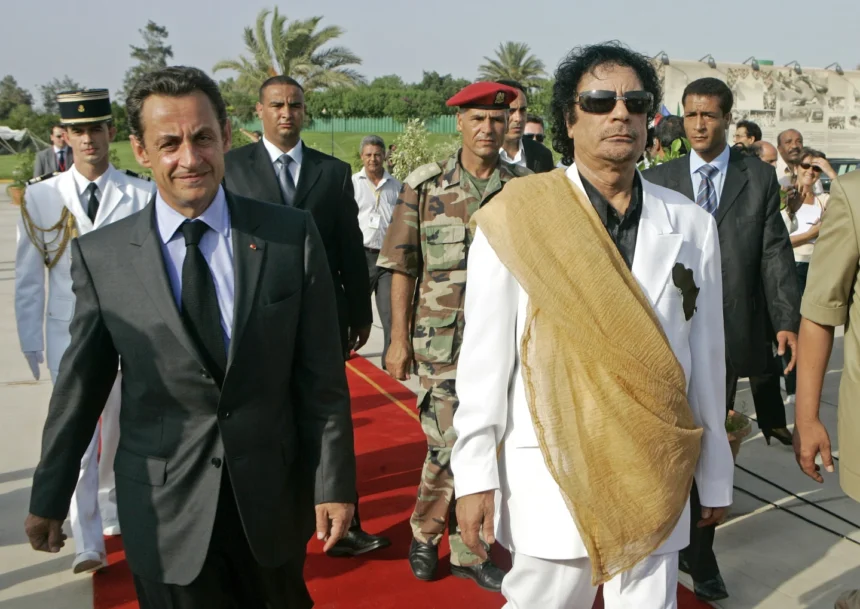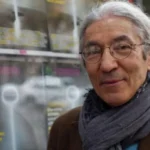The recent trial of former French President Nicolas Sarkozy not only highlights his alleged financial improprieties during the 2007 presidential campaign but also unearths the murky waters of France’s diplomatic engagements with Libya under Muammar Gadhafi. As the courtroom drama unfolds, it provides a rare glimpse into the back-channel talks that shaped Franco-Libyan relations, revealing complexities that extend far beyond simple political maneuvering.
At the heart of the trial is the accusation that Sarkozy received €50 million ($54 million) in illegal campaign financing from Gadhafi. This claim surfaced from testimonies and documents indicating that Gadhafi’s regime, desperate for legitimacy in a post-2003 Iraq context, sought strategic partnerships to bolster its international standing. Sarkozy’s reportedly lavish lifestyle, coupled with his strong advocacy for aiding Libyan rebels during the NATO intervention in 2011, raises uncomfortable questions about the ethical implications of such financial alliances.
Historically, relations between France and Libya have oscillated between strategic engagement and outright condemnation, depending on the prevailing political climate. Sarkozy’s government, in particular, embraced Gadhafi’s regime, viewing it as pivotal in stabilizing North Africa and combating terrorism. This approach culminated in a controversial 2007 state visit wherein Gadhafi received a grand reception, signaling France’s willingness to overlook human rights violations for geopolitical interests.
The trial allowed both the prosecution and defense to delve deeper into these uncomfortable historical ties, shedding light on the intricate web of diplomacy that had characterized Franco-Libyan relations. For instance, evidence presented in court included testimonies from key figures close to Sarkozy, who discussed the significant political leverage that could be gained from a positive relationship with Gadhafi. These insights illustrate what is often shrouded in secrecy: how financial and military support were sometimes intertwined with diplomacy in the region.
The Libyan Civil War in 2011 radically altered this dynamic. France’s military intervention, supported by NATO forces, was framed as a humanitarian mission, but critics argue it also served Sarkozy’s interests in distancing himself from Gadhafi’s corrupt regime. A troubling question that emerged from the trial is whether Sarkozy’s initial acceptance of financial support from Gadhafi played a role in shaping his administration’s robust military stance against the Libyan leader when public opinion shifted.
Moreover, the trial has broader implications for understanding international relations in the post-Cold War era, particularly regarding the role of illicit financing in foreign policy. As the scrutiny intensifies on Sarkozy, it sparks a necessary discussion on accountability among world leaders who may exploit back-channel diplomacy to further their own political trajectories.
Opponents of Sarkozy’s approach argue that his dealings with Gadhafi contributed to the later chaos in Libya, following the dictator’s ousting, which resulted in a failed state and years of civil strife. The aftermath raises ethical questions surrounding foreign intervention, suggesting the line between diplomacy and complicity is often obscured.
In summary, Sarkozy’s trial is not merely an examination of his political career but a lens through which to analyze how back-channel negotiations can dangerously intertwine with personal gain and political expediency. The intertwining of Sarkozy’s alleged corrupt practices with France’s intricate diplomatic dialogue with Libya emphasizes the need for greater transparency and ethical regulations in international diplomacy. As the world looks on, this trial not only challenges Sarkozy’s legacy but also serves as a cautionary tale about the costs of political ambition, particularly in the realm of foreign relations.
Email Us on editorial@nnafrica.com













